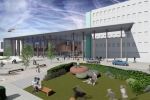The Government is clear that patient handovers at A&E must take place within agreed times. Over 40% of tax revenue in the UK goes towards funding health so local decision-makers need to show real leadership to deal with some of the problems Cornwall’s NHS is facing. NHS England has given targeted support to the hospitals facing the longest delays in the handover of patients from ambulances, helping them to identify short- and longer-term interventions to reduce delays and get ambulances swiftly back out on the road. All integrated care boards are working out the capacity needed to support performance and how this can be delivered.
To help make further progress and support regional and local system arrangements, we have established a national discharge taskforce with membership from local government, the NHS and national government. Local health and social care partners are already standing up the use of additional action to support discharge. We will continue exploring options that minimise delays to hospital discharge, including identifying capacity to accommodate people who no longer need acute hospital care but continue to need other forms of support.
In addition to this, NHS England has allocated £150million of additional system funding for ambulance service pressures in 2022-23, supporting improvements to response times through additional call handler recruitment and retention and other funding pressures. NHS England has also tendered for auxiliary ambulance services to a total value of £30 million. The contract will provide national ‘surge’ capacity to support the ambulance response during periods of increased pressure.
In 2020-21, £450million was invested to upgrade A&E facilities in 175 smaller schemes and 25 major schemes by expanding waiting areas and increasing the number of treatment cubicles, which helped reduce overcrowding and supported social distancing throughout the pandemic. The additional capacity helps to speed up the patient handover process from ambulance staff to A&E staff.
Government schemes to improve ambulance performance have provided 382 waiting spaces, 175 major cubicles, for patients most likely to need admission, 42 resuscitation cubicles and 177 same-day emergency care cubicles in 2021-22. This progress has been made despite the huge pressures faced by A&E departments and the construction sector.
I would like to say that I hugely value and appreciate all our NHS staff. I am pleased that we have committed to giving NHS workers a pay rise this year, having given a three per cent rise last year when pay was generally frozen in the public sector. We asked the independent pay review bodies (PRBs) to provide recommendations for NHS staff pay increases for those not already in multi-year deals. The PRBs are made up of independent experts who carefully consider evidence submitted to them from a range of stakeholders, including Government, NHS system partners and trades unions, alongside factors including cost of living, inflation and value for the taxpayer.
The PRBs also have to consider recruitment, retention and staff morale. The independent NHS PRB for Agenda for Change (AfC) staff, including nurses, recommended a £1,400 consolidated uplift for all AfC staff to their full-time equivalent salary, enhanced for the pay points at the top of band 6 and all pay points in band 7 so that it is equal to a four per cent uplift. We have now accepted its recommendations in full and will backdate all pay awards to April 2022.
As a result of this investment, over one million NHS staff, including almost all non-medical NHS staff in the hospital and community health service sector, will benefit from a basic pay rise of at least £1,400, which will be prorated for those working part time. This means that, compared with 2021/22 pay scales, the lowest earners, such as porters and cleaners, will see a 9.3 per cent increase in their basic pay this year. The Review Body on Doctors’ and Dentists’ Remuneration (DDRB) recommended a uniform 4.5 per cent pay uplift for medical staff within their remit this year. The DDRB was not asked to make a pay recommendation for doctors and dentists in training, contractor general medical practitioners, or specialty doctors on the 2021 contract, as these workforce groups are in respective multi-year pay and contract reform deals.
The Government has accepted the DDRB’s recommendation in full. Junior doctors are already in a pre-existing multi-year pay and contract reform deal and so the DDRB was not asked this year to make pay recommendations for this group. The deal ends next year, which will be the right time to consider junior doctors’ pay. Alongside investment in pay, the deal has invested £90million to create a new higher pay point for the most experienced junior doctors, increase allowances for those working the most frequently at weekends, enhance eligibility for night shift pay, and create a £1,000-ayear allowance for junior doctors who work less than full time, to help them with the cost of training. We also previously invested £10million to help deliver high-quality rest areas in every hospital. This is part of our commitment to the mental and physical wellbeing of all junior doctors.


